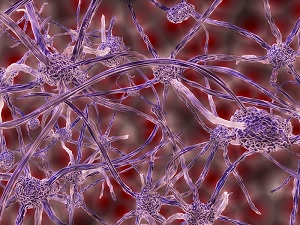 You’ve got a massive highway of nerves running through your body.
You’ve got a massive highway of nerves running through your body.
Those nerves can become pinched any time there’s pressure on the nerve, usually when it’s compressed between two other tissues such as tendons, ligaments, or bones.
That explanation sounds simple and straightforward enough. Of course, lacking X-ray vision, it’s difficult to peer inside yourself to see if that’s what’s causing that sudden, shooting pain you’re feeling.
In the absence of X-ray vision then, here’s how you can tell if the pain you’re feeling is indicative of a pinched nerve or not:
- If you feel a sharp, radiating pain that originates from a localized point on your body, especially in your neck or lower back. However, the pain could be most anywhere since you’ve got nerves all over your body.
- If you feel weakness in the area where the pain is originating from, especially when performing certain repetitive motions.
- If you feel numbness or tingling (“pins and needles”), or if you feel a burning sensation from the area where the pain is originating from.
Of course, these symptoms aren’t unique to nerve pain, so even if you’re feeling all three, that’s still not definitive. To get a definitive diagnosis, your best bet is to make an appointment with your chiropractor right away.
If that’s impractical in the immediacy, the first thing you should do to treat the possible nerve damage is to rest the affected area. Stop doing whatever it was you were doing when the pain began. Consider if you moved differently than normal, which could have caused the pinched nerve.
If the pain persists, use alternating ice and heat to try and reduce the swelling in the impacted area, which may help take pressure off the nerve. Assuming that there’s no medical reason you can’t take NSAIDs like naproxen, ibuprofen or aspirin, these also help to reduce swelling and should at least be considered. Again, an appointment to your chiropractor at your first opportunity is the ultimate solution.